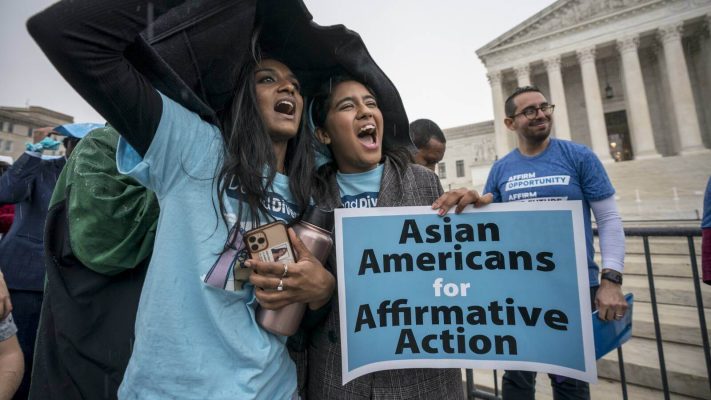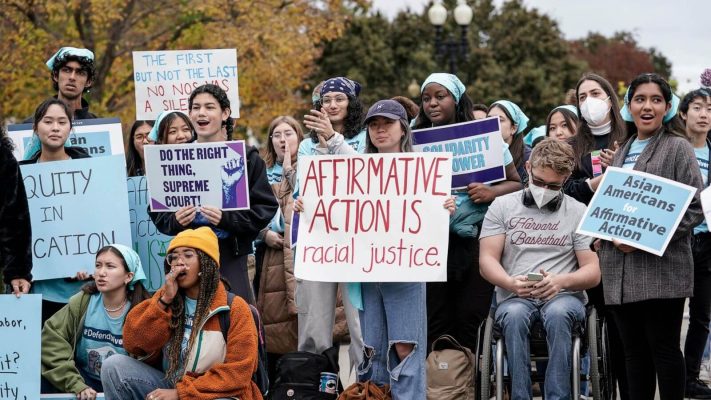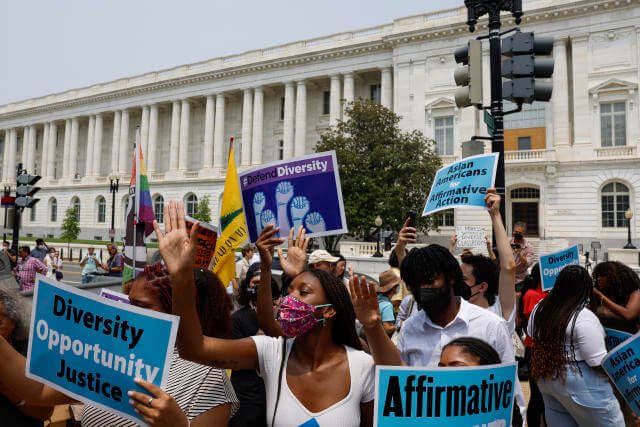US Supreme Court Ends Affirmative Action in College Admissions, Sparks Controversy
In a landmark Affirmative Action decision, the US Supreme Court, with a 6-3 majority, has declared that the consideration of race in college admissions violates the Equal Protection Clause of the 14th Amendment.
The ruling specifically targets the admissions processes of Harvard University and the University of North Carolina (UNC), but its impact extends to higher education institutions nationwide.
Writing for the majority, Chief Justice John Roberts stated that the admissions programs of Harvard and UNC lacked clear objectives that justify the use of race.
Roberts argued that these programs not only employ race in a negative manner but also perpetuate racial stereotyping. He emphasized that an individual’s identity should be determined by achievements, skills, and growth, rather than the color of their skin.
However, the three liberal Justices—Sonia Sotomayor, Elena Kagan, and Ketanji Brown Jackson—dissented from the majority opinion.
Sotomayor, in her dissenting opinion, contended that the equal protection clause allows for race-conscious measures in a society. Where race continues to play a significant role.
She highlighted the historical racial exclusion in the legacies of Harvard and UNC. Including their connections to slavery and white supremacy.
Lawsuits and Arguments

The lawsuit against Harvard was filed by a group called Students for Fair Admissions. Funded by conservative legal activist Edward Blum.
They alleged that Harvard’s admissions process discriminates against Asian American applicants in favor of other racial and ethnic groups.
The UNC case argued that the consideration of race in admissions violates the equal protection clause of the 14th Amendment.
The affirmative action decision has widespread implications for affirmative action policies in college admissions.
Affirmative action emerged during the civil rights movement as a means to address discrimination based on race, religion, and gender.
While nine states had already banned race-based affirmative action in public institutions. This Supreme Court ruling impacts both private and public colleges and universities across the country.
Reactions to the affirmative action decision have been polarized. Former President Barack Obama and Michelle Obama expressed disappointment.
Emphasizing the importance of affirmative action in providing opportunities for underrepresented groups.
Senate Majority Leader Chuck Schumer criticized the decision, asserting that it obstructs progress towards racial justice and exacerbates existing inequalities.
On the other hand, former South Carolina governor and 2024 GOP presidential candidate Nikki Haley supported the ruling, arguing that it promotes fairness and equal opportunity.
The Debate Surrounding Affirmative Action

The debate surrounding affirmative action has long centered on questions of educational benefits and diversity.
During oral arguments, conservative Justices questioned the legality and necessity of considering race in admissions, referencing a 2003 case that predicted the obsolescence of affirmative action within 25 years.
This Supreme Court decision marks a significant turning point in the role of affirmative action in college admissions.
While proponents of the ruling assert that it supports merit-based considerations, opponents argue that it perpetuates racial inequality and fails to address the historical context of discrimination.
As the nation grapples with these implications, the future of diversity and access in higher education remains uncertain.
Are Affirmative Action Plans Required by Law

Certain contexts, for government contractors and subcontractors in the United States legally require the implementation of action plans. The Office of Federal Contract Compliance Programs (OFCCP) is responsible for enforcing these requirements.
The main goal is to ensure that employers who receive funds are actively taking steps to prevent discrimination and promote employment opportunities for women, minorities, individuals, with disabilities and protected veterans.
However private companies that do not have government contracts are not obligated by law to have plans. May choose to implement them voluntarily.
Are Affirmative Action Plans Confidential
Affirmative action plans are usually treated as confidential within an organization. They consist of information regarding the companys employment practices, demographic data and approaches, to promoting diversity and inclusivity in the workplace.
Although companies may share aspects of their action plans, detailed data and specific strategies are generally kept confidential in order to safeguard employee privacy and proprietary company information.
However if a government agency such as the OFCCP initiates an investigation or audit companies are obligated to grant access, to their action plans.





